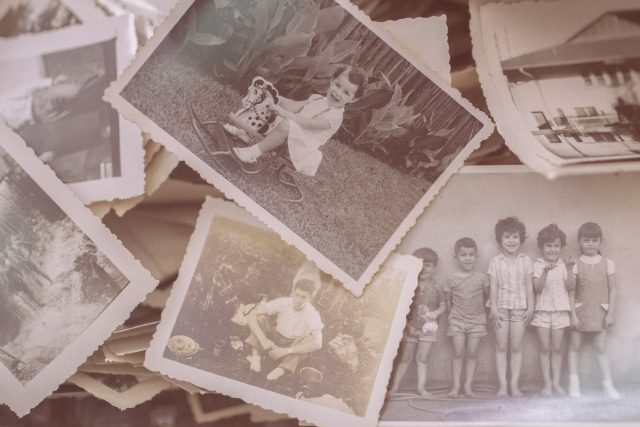As medical psychologists, we are required to study the entire range of human existence from the initial stages of life as a fetus and ending with the inevitability of death. We delve into topics regarding the field of thanatology, which is the study of death and dying and how to cope with the loss of a loved one. Death is a part of life and of course involves how one copes with loss, influenced by whether you believe death is the end of your relationship with your loved one or whether you believe that one day, you will meet again and so continue that relationship.
If you believe that we disappear and no longer exist when we die, you are more likely to be upset with the thought of death and more fearful of it. This disposition inevitably leads to psychological distress, depression, sadness, anger, and can cause you to question why you are alive and not your loved one, or why we even bother with life itself. Such destructive thought processes have no beneficial effects in dealing with loss, and thus we will focus here on how to help you cope with loss assuming you share the hope in life after death.
In 1969, Elisabeth Kübler-Ross constructed the Kübler-Ross Theory detailing 5 stages (1. Denial and isolation; 2. Anger; 3. Bargaining; 4. Depression; 5. Acceptance) of terminally ill patients in regards to their imminent death. In more recent times, we have taken the Kübler-Ross theory and have adapted it to what is now widely accepted as the five stages of grief. The original theory was not conceived to explain what people experienced when they lost their loved one, rather it detailed the process terminally ill patients undergo as they come to terms with their illness and imminent death.
Although the original theory is not an official step-by-step manual for how to grieve, it’s important to say that individuals experience loss differently. These stages are not to be taken as occurring in any particular order nor is it necessary that one experience all of them. So, how can you best handle the grieving process? Let’s look into how these stages of the Kübler-Ross Theory in order to help you understand what may be happening to you as you grieve.

1. Denial
Denial is natural, a self-protective mechanism, and is usually our first reaction when facing the reality of the loss of a close loved one. It’s a normal reaction, it’s our brain’s way to cope with reality so that we are not overwhelmed by our emotions and helps us prepare for the upcoming difficult feelings. Call it a needed pause if you may. People can move in and out of denial, but with help and comfort of your family and relatives, you may find the help you need to slowly bring closure and soften the reality of the loss of your loved one.
2. Anger
Life is not always fair. We may be angry with our deceased loved one, ourselves, others who may have had a part in the death of the loved one, and angry with God for allowing this horrible thing to occur. We may be angry with our loved one for having caused this grief through his or her actions. Along with anger, it’s natural to feel confusion, sadness, and some people even feel guilt and question their actions.
Grieving takes time and is important not to hesitate to ask questions and to seek comfort. Health professionals deal with death and dying daily. This does not make them immune to the suffering of patients or of those who are grieving. They may be suffering as well and at times, not capable of providing the comfort you need. So do allow your friends and family to provide a safe haven in which you can retreat to cope with the reality of your loved one’s passing.
3. Bargaining
You may begin to attempt to bargain with God. For example, you may promise God that you will be more kind, understanding, caring, just, etc. in hopes of bringing your loved one back or to give meaning to the loss. We may feel that there is something we could have done differently to have helped save our loved one. Unfortunately, bargaining will not help bring your loved one back nor will it postpone the inevitable. Take your time to come to terms of reality and take comfort in the beautiful memories you have shared together.
4. Depression
Based on our studies, psychologists have learned that sadness does not equal depression. However, unknowns that must be dealt with at death, whether it be the costs associated with the burial, the type of burial, our guilt or sadness in not having taken enough time with our loved one or the dealing with the loss of that person in our lives may lead to depression. If you or a family member know that you have a family history of clinical depression, it is advisable to seek immediate help from a medical professional, be that a doctor or a medical Psychologist/Psychiatrist. Deep depression can have sever effects on the grieving individual.
5. Acceptance
Grieving is a natural process which eventually leads to acceptance and should never be rushed as each person experiences grief differently. Thus, we cannot expect people to accept the death of a loved one right away as it takes time for the individual to find closure and peace. Acceptance is characterized by peace and calm, in finally accepting the tragic event. Even though you may never stop missing your beloved, once you’ve reached this stage, you have accepted the reality of the situation, that death is a part of the cycle of life. How our loved one dies, the level of grace, of dignity, can help us accept death vicariously through them. Not everyone has the luxury of time to reach this stage.

Examples of how you can achieve acceptance or closure are, through prayer, telling your loved one how much you love them and that you will always cherish the memories and take comfort in that they are in a better place. You may find comfort in all the wonderful memories you’ve made together, or better yet continue the traditions you and deceased your loved one made and share these with other family members. The memorial you create with this website can help you retain these memories close to your heart as your life’s journey continues. This can help you to find peace and comfort in coming to acceptance of your loss.
Death is a natural yet difficult part of life and simply cannot be fully explained in five steps. What’s more, different peoples and cultures have their own ways of dealing with death.
I hope my post on “Understanding the process of grieving and coping with death” will give you some food for thought and also help you in finding peace in the most difficult of times. I would like to leave you with this quote from my grandfather, which he shared with me when he passed:
Don’t cry for me, as I have not died, I live on in your memories.
Heinrich Schum






